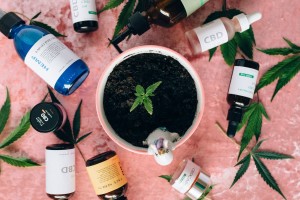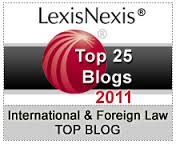
CBD, or cannabidiol, is a naturally occurring, non-intoxicating compound found in the cannabis plant. Technically, the compound is known as a phytocannabinoid (cannabinoid for short) and, depending on which sources you consult, anywhere from ninety-seven to over one hundred and twenty cannabinoids have been isolated from the Cannabis plant.1
If it’s cannabis, it’s illegal. Right?
There isn’t a quick answer to that. Legislation tackles cannabis use on a number of fronts, seeing it as either a:
- controlled drug,
- medicinal product,
- food,
- cosmetic, or
- vaping product.
Non-prescription CBD products that you take into your body, whether by eating, drinking, swallowing or sublingually are collectively known as ingestibles, and in Scotland they’re regulated as novel foods. The regulatory authority is Food Standards Scotland, which together with the Food Standards Agency for England and Wales (“FSA”), manages the GB novel foods authorisation process (Northern Ireland still following the EU authorisation route). On-the-ground policing is carried out by local authority food safety teams.
To understand the regulation of ingestible CBD, it’s necessary to look at cannabis as a controlled drug and the carve out for an ‘exempt product’.
CBD as a controlled drug
Cannabis is listed as a Class B drug under the Misuse of Drugs Act 1971 (“MDA”), an intermediate class for drugs considered harmful to individuals and society.2
But it’s not listed as a single entity. Instead, what’s listed is:
- Cannabinol
- Cannabinol derivatives
- Cannabis and
- Cannabis resin.
‘Cannabis’, as defined in s37, covers the whole plant and any part of the plant, excluding the mature stalk, fibre from the mature stalk and the seeds, where those three parts are separated from the plant. And resin is the resin obtained from any part of the plant.
The definition used for ‘cannabinol derivates’ is what is described as a generic definition.3 At its heart is the intention to capture those cannabinoids that have psychoactive effects, namely the tetrahydro family of cannabinoids (the THC cannabinoids).
Cannabinol (“CBN”) is not defined possibly because the cannabinoid only occurs naturally in minute amounts in the plant, with its production primarily formed from the degradation of THC during drying, storing and heating.
While the MDA is intended to prevent the misuse of controlled drugs by banning their possession, supply, manufacture, import and export, (and additionally, in the case of cannabis, its cultivation) The Misuse of Drugs Regulations 2001 (“MDR”) provide the framework for access to controlled drugs for legitimate purposes.4 CBN, CBN derivatives (excluding synthetic THC), cannabis and cannabis resin are in Schedule 1, where drugs with no therapeutic value and used mainly in research under a Home Office licence are placed.
You may be wondering why CBD is controlled via the MDA/MDR regime, since it’s a non-intoxicating cannabinoid and isn’t a member of the tetrahydro family of cannabinoids. This is because it’s considered, by the Home Office, to be very difficult to extract CBD without the presence of other controlled cannabinoids.5
The carve out for CBD products comes in the form of regulation 2. It’s a three-limbed test and a product must satisfy all three to avail itself of the exemption. A product:
- Must not be designed for the administration of a controlled drug,
- The controlled drug must not be readily recovered from the product, and
- There isn’t more than 1mg of the controlled drug in the product.
It’s the third limb that causes confusion and difficulties within the CBD industry.
The confusion stems from the fact that under a cannabis licence from the Home Office, commercial hemp (a variety of cannabis plant with low THC and high CBD) can only be grown where the plant can’t naturally produce more than 0.2% THC. But the limit for an exempt product under the MDA is 1mg of the controlled drug.
There’s also confusion as to whether the 1mg limit refers to THC only, or whether it refers to the total quantity of all the controlled cannabinoids present. The current MDA/MDR regime covers cannabinoids where the Advisory Council on the Misuse of Drugs (which makes recommendations to the UK government on the control of drugs) has expressed doubts as to their psychoactive properties.6
Peculiarly, the 1mg limit applies regardless of the size of the container. This can cause difficulties for producers of bulk CBD products because of the accumulation of cannabinoids in the bulk container, before onward distribution in smaller containers.7
What is clear is that the dried flowers of any cannabis plant, regardless of the plant’s THC content, are controlled and not legally available. Cultivators of hemp, growing under a Home Office licence, must destroy the flowers and leaves on site; the cultivation licence doesn’t extend to possession of the controlled flowers and leaves. This limitation to CBD extracted from commercial low-THC hemp grown from an approved seed type is also applied to CBD imported to be manufactured into CBD products in Great Britain. It is important that sellers have assurances of seed to sale traceability for their CBD products.
Can anybody sell CBD products in Scotland?
No. Passing the exempt product test isn’t the end of the story.
In 2015 the EU updated its rules on novel foods, defining them as foods with no significant consumption within the EU prior to the 15th May 1997.8 In 2019 the EU clarified that CBD food products/supplements fell within the remit of novel foods. It created an EU-wide assessment body, the European Food Safety Authority and a List of Approved Novel Foods. As Great Britain is no longer within the EU, the authorisation is now via the FSA portal.
There are no ingestible CBD products authorised as novel foods on the Scottish or Great British markets.
How come I see CBD for sale everywhere?
That’s because there’s a form of retrospective authority for certain CBD products to remain on the market pending novel food authorisation. To qualify, CBD products must
- Have been on sale on the 13th February 2020,
- Be linked to an application for Novel Food Status made before 31st March 2021, and
- The application is either validated as containing all the required scientific and administrative information needed for assessment or can robustly demonstrate that the required information will be delivered in a suitable timeframe.
This means that no new CBD products can come onto the Great British market without full authorisation.
Those products meeting the retrospective requirements are listed on the FSA’s public register of CBD products linked to novel food applications (FSA Register).
The current authorisation procedure isn’t without its difficulties.
FSA guidance provides that ‘[o]nce a CBD ingredient is authorised that authorisation applies to that ingredient only’ meaning it must be reproduced using the same production methods and for the same uses as set out in the authorisation.9 What does this mean for businesses in possession of authorisation if they wish to make a minor change to the product, like a different flavour? Will they have to go through the entire process again, one which is estimated to cost in excess of £300,000.10 Certainly, the products listed on the FSA’s Register are very specific as regards such matters, e.g., different variations of the same product are listed in the application where the variation is a different flavour.
And what are the implications for business-to-business white labelling under this retrospective authorisation? White labelling is where a business sells a product, manufactured by another company, under its own brand name. This wouldn’t seem permissible as that new brand wouldn’t have been on the market in February 2020, nor be linked to a validated Novel Foods application.
The UK’s CBD market was worth £300 million in 2019 and is predicted to reach £1 billion by 2025.11 But the current authorisation procedure favours the big players who can afford the application costs, with Small and Medium Sized Enterprises locked out. Furthermore, the limited retrospective permission to remain on the market pending authorisation is capable of creating a monopoly in this burgeoning market.
By Louyse McConnell-Trevillion, Solicitor, Director and Legal Adviser at Celtic Calm and Wellbeing Limited, a Scottish based CBD business. A former Senior Government solicitor and legal adviser to the Lord Advocate.
References
- Advisory Council on the Misuse of Drugs (2016) Phytocannabinoids: A review of the generic definition. Available here.
- Morales P, Hurst DP, Reggio PH. “Molecular Targets of the Phytocannabinoids: A Complex Picture”, Prog Chem Org Nat Prod. 2017;103:103-131. doi: 10.1007/978-3-319-45541-9_4. PMID: 28120232; PMCID: PMC5345356. Available at: https://pubmed.ncbi.nlm.nih.gov/28120232/
- Misuse of Drugs Act 1971 c.38, section 2 and Schedule 2 Part II. Available at: https://www.legislation.gov.uk/ukpga/1971/38/contents
- Advisory Council on the Misuse of Drugs (2016) Phytocannabinoids: A review of the generic definition. Available here.
- The Misuse of Drugs Regulations 2001/3998. Available at: https://www.legislation.gov.uk/uksi/2001/3998/contents
- Home Office Drug Licensing Factsheet – Cannabis, CBD and other cannabinoids. Available at:https://www.gov.uk/government/publications/cannabis-cbd-and-other-cannabinoids-drug-licensing-factsheet
- Advisory Council on the Misuse of Drugs (2016) Phytocannabinoids: A review of the generic definition. Available here.
- Maple Tree Consultants and Mackrell Solicitors (2021) UK Medical Cannabis & CBD Market: Discussion Paper, Ten Recommendations for Government. Available here.
- Council Regulation (EU) 2015/2283 on novel foods, amending Regulation (EU) 1169/2011 and repealing Regulation (EC) 258/97 and Regulation (EC) 1852/2001. Available here.
- Food Standards Agency Cannabidiol (CBD) guidance for England and Wales. Available at:https://www.food.gov.uk/business-guidance/cannabidiol-cbd
- Maple Tree Consultants and Mackrell Solicitors (2021) UK Medical Cannabis & CBD Market: Discussion Paper, Ten Recommendations for Government. Available here.
- ibid.

